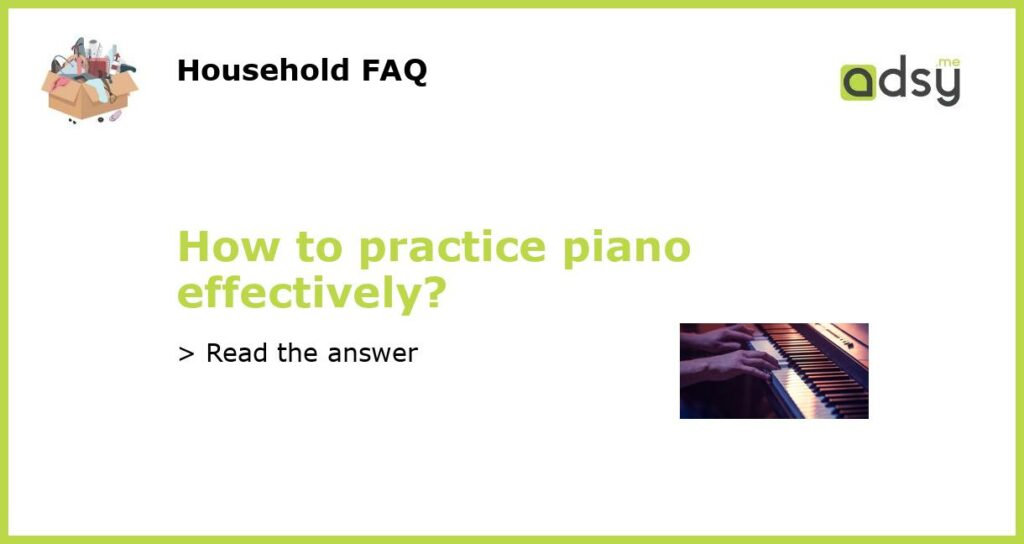Set clear goals
Before you begin practicing piano, it’s important to set clear goals for yourself. What do you want to achieve with your piano playing? Do you want to become a concert pianist or do you simply want to be able to play your favorite songs? Once you have a clear idea of your goals, you can tailor your practice sessions to help you reach them.
Develop a consistent practice routine
Consistency is key when it comes to practicing piano. Set aside a specific time each day to practice and stick to it. Whether it’s 30 minutes or an hour, make sure you practice at the same time each day. This will help you develop a routine and make practicing piano a habit.
Break it down
If you’re learning a new piece or technique, it can be helpful to break it down into smaller parts. Practice each section individually before trying to put them all together. This will help you master each part of the piece and make it easier to play as a whole.
Focus on technique
Technique is important when it comes to playing piano. Make sure you’re using the correct hand and finger positions when playing. Practice scales and exercises to improve your finger strength and dexterity. Don’t just focus on playing songs, but also on improving your overall technique.
Get feedback
It’s important to get feedback on your playing. Take lessons with a teacher who can give you feedback and help you improve. Record yourself playing and listen back to identify areas for improvement. Listening to other pianists can also be helpful in developing your own playing style.






